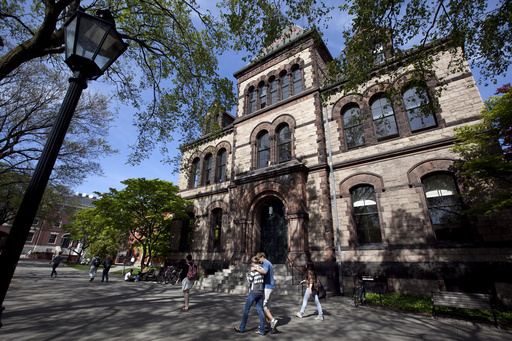
Brown University has officially transferred ownership of a section of its land located in Bristol, Rhode Island, to a preservation trust set up by the Pokanoket Indian Tribe.
This transfer is intended to guarantee that access to the land and surrounding waters is granted to local tribes and Indigenous peoples for whom the area holds deep cultural significance. The university finalized this transfer last month.
The land holds historical importance as it is the ancestral territory of Metacom, or King Philip, who was the leader of the Pokanoket people. It is also the site where he was killed in 1676 during King Philip’s War, a brutal conflict between Indigenous tribes and European colonists.
In August 2017, members of the tribe along with their supporters established a campsite at the university, claiming that the land had been unjustly taken from them centuries earlier.
This encampment aimed to reclaim the tribe’s ancestral territory in Bristol, which they regard as spiritually significant. Although the Pokanoket Nation lacks federal recognition, its members assert their heritage as descendants of the tribe that provided assistance to the pilgrims and its leader, Massasoit, who was Metacom’s father.
At that time, the Ivy League institution maintained that the land was donated many years prior and that it had held legal title to it for over six decades.
A month after the encampment’s inception, the university reached a consensus to acknowledge that the land is historically connected to the Pokanoket people.
This land is part of the university’s 375-acre (150-hectare) Mount Hope property, which was donated to Brown in 1955. The property is also home to the Haffenreffer Museum of Anthropology and serves as a center for educational programs and field research.
The recent transfer of land aligns with a commitment made in the agreement from 2017, according to university officials.
Brown University commissioned the Public Archaeology Laboratory, Inc. to perform a tribal cultural sensitivity assessment, which concluded that the approximately 255 acres (100 hectares) of Bristol land should be classified as a traditional cultural property.
The university anticipates moving its museum collection in the fall of 2025 and aims to vacate the museum facilities located on the Mount Hope property by the summer of 2026.
Tracey “Dancing Star” Trezvant Guy, sachem of the Pokanoket Tribe, expressed jubilation over the land transfer.
She stated, “The significance of this land goes back to time immemorial for our people. For the first time in over 340 years, we unlocked the gates to the property for ourselves and walked onto our land. That is significant. It is historical.”
Russell Carey, Brown’s executive vice president for planning and policy, conveyed that the university is committed to preserving the land while ensuring sustainable access for Native tribes associated with its historical locations.
According to the deed for the land transfer, which is irrevocable, the Pokanoket “shall at all times and in perpetuity provide and maintain access to the lands and waters of the Property to all members of all Tribes historically part of the Pokanoket Nation/Confederacy, and to all members of the Wampanoag Tribe of Gay Head (Aquinnah), the Mashpee Wampanoag Tribe, the Assonet Band of the Wampanoag Nation, the Herring Pond Wampanoag Tribe and the Pocasset Tribe of the Pokanoket Nation.”
